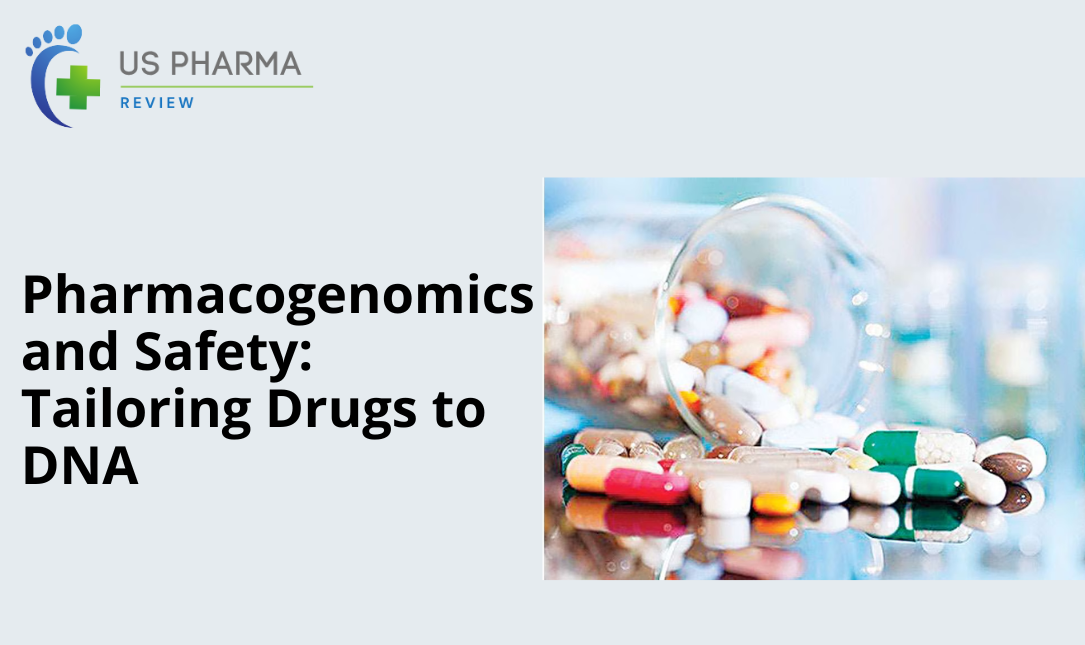Travel Tips
Lorem ipsum dolor sit amet, consectetur adipiscing elit.

In the rapidly evolving world of healthcare, Pharmacogenomics has emerged as a cornerstone in improving drug efficacy and safety. By studying how an individual's genetic makeup affects their response to medications, Pharmacogenomics allows healthcare providers to predict the effectiveness and potential risks of specific drugs. This scientific approach paves the way for personalized medicine, ensuring that treatments are tailored to each patient's unique genetic profile.
Traditionally, medications were prescribed based on population averages, often resulting in trial-and-error treatments. With Pharmacogenomics, clinicians can now understand genetic drug response at a molecular level, reducing adverse reactions and optimizing therapeutic outcomes.
Drug safety has always been a top priority in medical practice. Adverse drug reactions (ADRs) are a leading cause of hospitalizations and even fatalities worldwide. Through Pharmacogenomics, clinicians can identify patients at higher risk for drug toxicity or insufficient response before prescribing therapy.
For example, variations in genes that encode drug-metabolizing enzymes, such as CYP450, can significantly alter how a drug is processed in the body. A patient with a slow-metabolizing variant may accumulate toxic levels of a drug, while a rapid metabolizer may not achieve therapeutic effects. By integrating Pharmacogenomics into clinical practice, healthcare providers can implement precision dosing, minimizing risks and maximizing drug efficacy.
At its core, Pharmacogenomics drives personalized medicine. Rather than applying a one-size-fits-all approach, treatments are customized to an individual’s genetic blueprint. This ensures that patients receive medications that are most likely to be effective while avoiding harmful side effects.
Consider treatments for chronic conditions like hypertension or depression. Certain genetic variants influence how patients respond to commonly prescribed medications, affecting both outcomes and safety. By leveraging genetic drug response data, physicians can select the ideal drug and dosage, making therapy more predictable and reliable.
This approach not only improves patient outcomes but also enhances adherence, as patients experience fewer adverse reactions and better symptom relief.
Precision dosing is a critical component of Pharmacogenomics. It refers to the practice of determining the exact dose of medication that will achieve optimal therapeutic effects for an individual patient. Traditional dosing methods rely heavily on population averages, which can lead to over- or under-treatment in certain patients.
Through pharmacogenomic testing, clinicians can adjust doses based on genetic drug response, liver and kidney function, and other patient-specific factors. This minimizes the likelihood of adverse effects and ensures that medications are both safe and effective. For example, in oncology, precision dosing guided by Pharmacogenomics can dramatically reduce chemotherapy toxicity while maintaining anticancer efficacy.
Several real-world applications highlight the power of Pharmacogenomics in improving drug efficacy and safety:
Warfarin Therapy – Genetic variations in the CYP2C9 and VKORC1 genes influence how patients metabolize warfarin, a commonly used anticoagulant. Pharmacogenomic-guided dosing reduces the risk of bleeding complications.
Oncology Treatments – Certain chemotherapy agents, such as 5-fluorouracil, are metabolized differently based on genetic variants. Pharmacogenomic screening identifies patients at high risk for toxicity, allowing for safer and more effective treatment plans.
Psychiatric Medications – Antidepressants and antipsychotics often show variable effectiveness due to differences in genes affecting drug metabolism. Pharmacogenomic insights can guide drug selection and dosing to enhance patient outcomes.
These examples demonstrate how Pharmacogenomics is transforming the standard of care, creating safer, more effective treatment pathways for diverse patient populations.
Despite its promise, the widespread adoption of Pharmacogenomics faces several challenges. Genetic testing can be expensive, and integrating pharmacogenomic data into electronic health records requires robust infrastructure. Additionally, many clinicians need specialized training to interpret test results accurately.
However, the future of personalized medicine looks promising. Ongoing research aims to expand pharmacogenomic databases, covering more drugs and diverse populations. As technology becomes more accessible, Pharmacogenomics will likely become a routine part of clinical decision-making, ensuring that drug safety and efficacy are optimized for every patient.
To maximize the benefits of Pharmacogenomics, healthcare institutions should adopt comprehensive strategies that include:
Routine pharmacogenomic screening for high-risk medications.
Training clinicians to interpret and apply genetic drug response data.
Incorporating precision dosing tools into electronic prescribing systems.
Monitoring outcomes to continually refine treatment protocols.
By implementing these practices, clinicians can reduce adverse drug reactions, enhance therapeutic outcomes, and uphold the highest standards of drug safety. For more insights on safe drug practices, see Managing Immunotherapy Side-Effects: Drug Safety Best Practices.
Pharmacogenomics represents a groundbreaking shift toward safer, more effective, and highly personalized healthcare. By understanding each patient's unique genetic profile, clinicians can tailor medications to optimize drug efficacy and safety while minimizing adverse reactions. From precision dosing to targeted therapies in oncology and psychiatry, the impact of pharmacogenomic insights is profound.
As research continues to expand our understanding of genetic drug response, the integration of Pharmacogenomics into routine clinical practice will become increasingly vital. Embracing this personalized approach ensures that patients not only receive the right drugs but also the right doses, marking a new era in drug safety and personalized medicine.